An open letter signed by concerned university academics argues that the public case for AUKUS has yet to be made, and calls on the government not to proceed with the development of a nuclear-powered submarine (SSN) capability for Australia until issues raised are addressed.
Read moreCategory: Analysis and comment
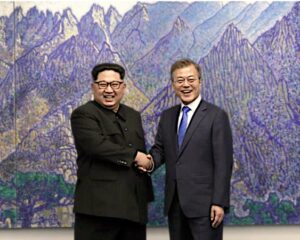
Why South Korea is balking at ‘the Quad’
This article explores the reasons why South Korea has been unwilling to join ‘the Quad’, suggesting that here the issue is not just about balancing diverging economic and security interests, but the reality that progressing South Korea’s key security priority – North Korea – requires a more accommodating approach to China.
Read more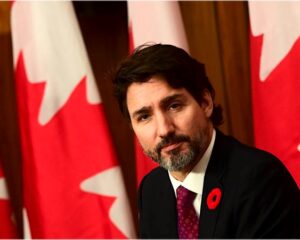
Even after Trump, it’s still hard to be America’s ally
In ‘It’s still hard to be America’s ally’, Richard Fontaine writes about the post-Trump challenges for US allies. Biden’s welcome celebration of US alliances, he writes, raises its own set of ambiguities and contradictions which pose new dilemmas for long-term allies.
Read more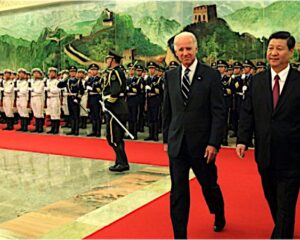
Dealing with a China that’s not like us: benign or malign competition?
The Biden administration’s approach to China is shaping up as a continuation of the Trump administration’s “strategic competition”. But will strategic competition with China under Biden mean a shift from the malign competition – where each country seeks to undermine rather than outperform the other – that was typical under Trump towards a more benign competition?
Read more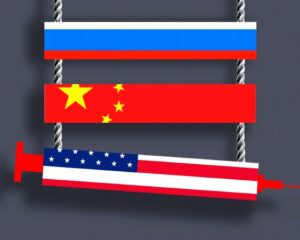
Beijing and Moscow are filling a vaccine gap that wealthy countries helped create
Author: Yasmeen Serhan | Published 30 March 2021 | The Atlantic The view is frequently expressed that Russia and China are engaging in ‘vaccine diplomacy’ and a ‘vaccine war of influence’; that their capacity to supply Covid-19 vaccines is “being leveraged as a form of soft power to bolster the countries’ global standing”. In this article Yasmeen Serhan suggests that while “U.S. and European leaders might not like it, they are effectively complaining about a
Read more
Rare earth elements: why there is no green future without China
Rare earth elements (REEs) are vital for communications, the green energy transition and defence. They are produced almost exclusively in China, and it will be very difficult to challenge China’s dominance of the global REE market.
Read more
The climate crisis can’t be solved by carbon accounting tricks
Professor Simon Lewis draws attention to the need to make carbon accounting trustworthy, and eliminate ‘carbon deceptions’ from approaches to emissions reductions.
Read more
Is the global shortage of Covid-19 vaccines due to artificial scarcity?
The World Health Organisation has today called for urgent action to ramp up the supply of Covid-19 vaccines, echoing the growing concern of many commentators observing the divergence between what developed countries are doing, and what we know must be done, to avoid prolonging the pandemic and increasing the cost to the global economy. In the article below, in the context of Italy’s decision this week to refuse an export licence for vaccines destined for
Read more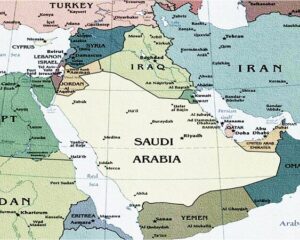
Did Trump gift Biden a more stable Middle East?
Commentators are divided on the nature of the Trump Administration’s legacy in the Middle East. Was it left in a parlous state, or was Trump’s parting gift to Biden a more stable region?
Read more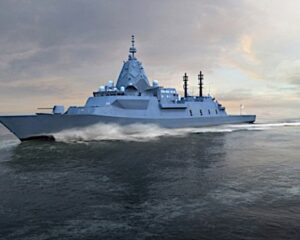
‘Bloat and warfare’: the Hunter class frigate and the trend toward ever-more complicated and expensive weapons
Why do weapons platforms keep getting bigger, more complicated, and more costly? In ‘Bloat and Warfare’ Jacob Parakilas makes some interesting observations about Canada’s new frigates, which are, like Australia’s proposed Hunter class frigates, based on the BAE Systems Type 26 frigate design.
Read more
How should the EU handle Russia’s Grand Strategy?
This Egmont Security Policy Brief notes that for many Western governments, there still is a lot of hesitation and bewilderment on how to deal with Russia. A first step in defining a coherent policy vis-a-vis Russia, is trying to understand the motivation and objectives of Russian foreign policy, as well as its weaknesses.
Read more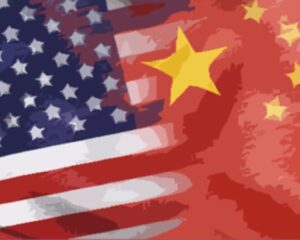
Biden’s top foreign policy challenge: avoiding a cold war with China
The Biden administration faces a host of difficult problems, but in foreign policy its thorniest will be its relations with the People’s Republic of China. How the new administration handles issues of trade, security, and human rights will either allow both countries to hammer out a working relationship or pull the U.S. into an expensive — and unwinnable — cold war. But there are a number of moves both countries could make to avoid this.
Read more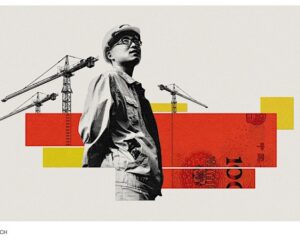
The Chinese ‘Debt Trap’ Is a Myth
A well-told lie is worth a thousand facts. And the debt-trap narrative is just that: a lie, and a powerful one. The Sri Lankan port of Hambantota is not an example of China’s strategic use of debt. With a new administration in Washington, the truth about the widely, perhaps willfully, misunderstood case of Hambantota Port is long overdue.
Read more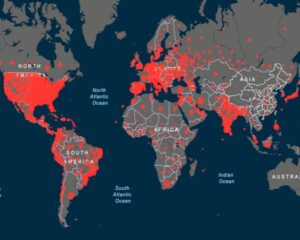
What explains COVID’s east-west divide? (John Feffer)
COVID-19 has drawn a clear line between Asia and the rest of the world. What’s particularly striking about this latest divergence is the lack of significance in types of governance. The countries that have been successful in Asia have very different forms of government, as well as different histories, religious backgrounds, and relationships with the countries of the West. How can this be explained?
Read more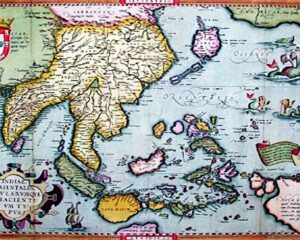
Document Daze: Understanding Trump’s “Indo-Pacific Strategic Framework” (James Curran)
In the dying days of the most chaotically dysfunctional presidency in living memory, outgoing officials in Washington declassified the Trump administration’s Strategic Framework for the Indo-Pacific. At issue is not only the contents of this document, but the manner and timing of its release and further, what its reception in Australia says about Australia’s relationship with the United States, and whether it shapes expectations for the new Biden presidency.
Read more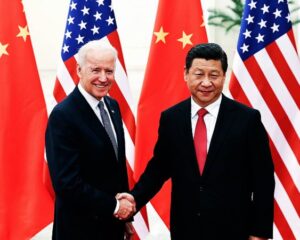
A China strategy to reunite America’s allies (Chatham House)
China already has significant geopolitical and economic clout in Asia and beyond – especially through the Belt and Road Initiative, its massive investment program in global infrastructure, and commercial development. Economic decoupling is not in the offing; China is far too integrated into the global economy. So is there a “China strategy” that would reunite the US and its democratic partners?
Read more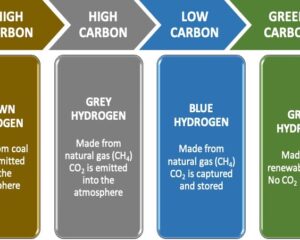
What’s the role of hydrogen in the clean energy transition? (UCS)
In energy transition conversations, hydrogen is having a bit of a moment. But, as ever, there’s a catch. So here, from the Union of Concerned Scientists’ Julie McNamara, an introduction to hydrogen as a decarbonisation pathway, to help differentiate between the promise and potential and the distractions and misdirections.
Read more
China and Brexit drive the UK’s Indo-Pacific ‘tilt’ (Bill Hayton)
Chatham House’s Bill Hayton looks at the UK’s ’tilt’ to the Indo-Pacific – involving trade, military presence and diplomatic efforts, concluding that the overall effect is likely to embed the UK in the Indo-Pacific as a valuable partner for those countries which value a free and open international order.
Read more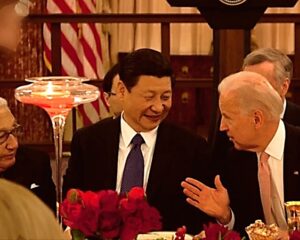
How Joe Biden can recalibrate US policy on China (Michael D Swaine)
Michael Swaine suggests that “a Biden presidency will likely correct many of Trump’s most egregious mistakes in handling Beijing while still supporting the bipartisan shift that has occurred toward intensified competition with China”. The article sets out some of the policy shifts that might result, but asks will Biden go far enough?
Read more
Radical pragmatism: policymaking after COVID (Gertz + Kharas)
Contemplating a world after COVID, some are calling for a reset of existing models of policymaking. In this essay the authors outline shortcomings in existing neoliberal economic models, and argue that the radical pragmatism of effective crisis response—a willingness to try whatever works, guided by an experimental mindset and commitment to empiricism and measuring results —represents a policymaking model that can and should be applied more widely, not only in times of crisis.
Read more